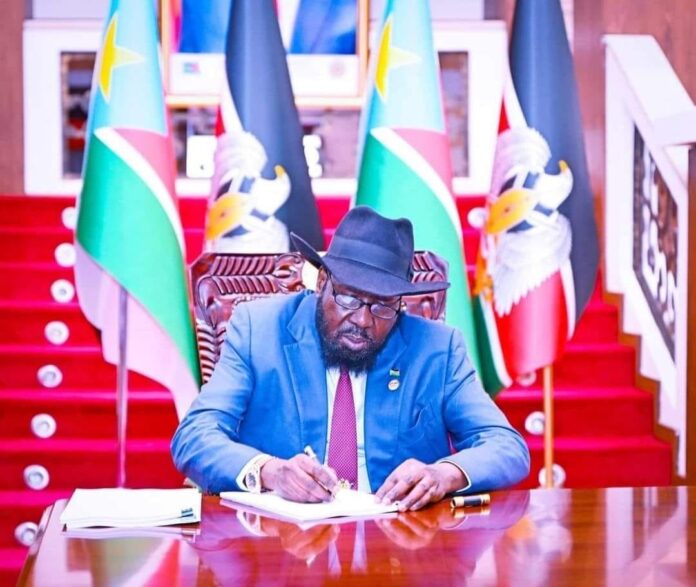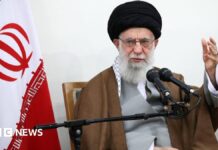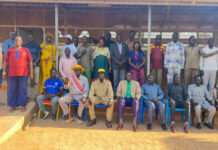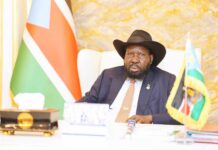Juba, South Sudan – In a significant reshuffling of leadership, President Salva Kiir Mayardit has relieved several high-ranking officials from their positions and made new appointments in key sectors of South Sudan’s government. The changes, announced on SSBC, are seen as part of a broader effort to strengthen governance and improve the efficiency of national institutions.
Among the major changes, General Santino Deng Wol has been relieved of his duties as Chief of Defense Forces (CDF) and reassigned to a new role as the Undersecretary for Veteran Affairs in the Ministry of Defense. General Wol, a veteran military leader, has been replaced by General Paul Nang Majok, who will now serve as the new CDF. This transition comes at a time when South Sudan’s military is undergoing reforms to enhance its capabilities and professionalism.
In another high-profile move, General Atem Marol Biar has been dismissed from his position as Inspector General of Police (IGP), and Abraham Peter Manyuat has been appointed as his successor. The reshuffle of the police leadership is expected to bring new approaches to tackling the country’s security challenges, including improving law enforcement and addressing issues of public safety.
Further bolstering South Sudan’s economic and financial sectors, President Kiir has appointed Johnny Ohisa as the new Governor of the Bank of South Sudan (BOSS), replacing Garang Alic. The appointment of Ohisa, an experienced financial expert, comes as South Sudan continues to focus on economic stabilization and managing its currency and banking systems.
Additionally, the President named Hon. Arop Anuoi Arop as the new Undersecretary of the Ministry of Finance and Planning, replacing Hon. Garang Majak Bol. The new appointment in the Ministry of Finance and Planning signals a shift toward strengthening fiscal policies and enhancing the country’s financial management in the wake of economic challenges.
The reshuffling is seen as a response to the ongoing need for reform within South Sudan’s public institutions, with a particular focus on improving security, governance, and economic stability.
These appointments have drawn attention both domestically and internationally as South Sudan seeks to navigate its post-conflict recovery and build a stronger, more accountable government.





